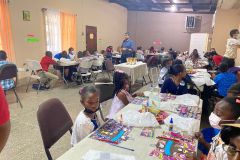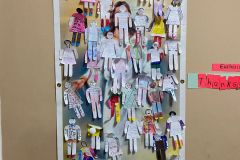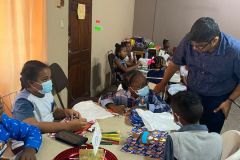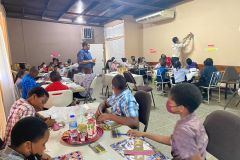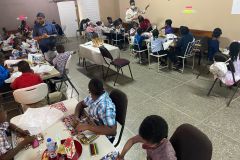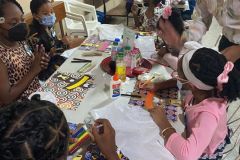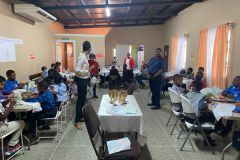See a few snapshots of moments caught in time during this retreat held at La Divina Pastora, Siparia
This rally was held on October 1st, 2022. See a few snapshots of moments caught in time during this rally held for the southern ¢ral vicariate.
The Archdiocesan Catechetical Office spearheaded an Alpha session with confirmation candidates with the youths of St Theresa’s, Barataria. See here for snapshots from the event.
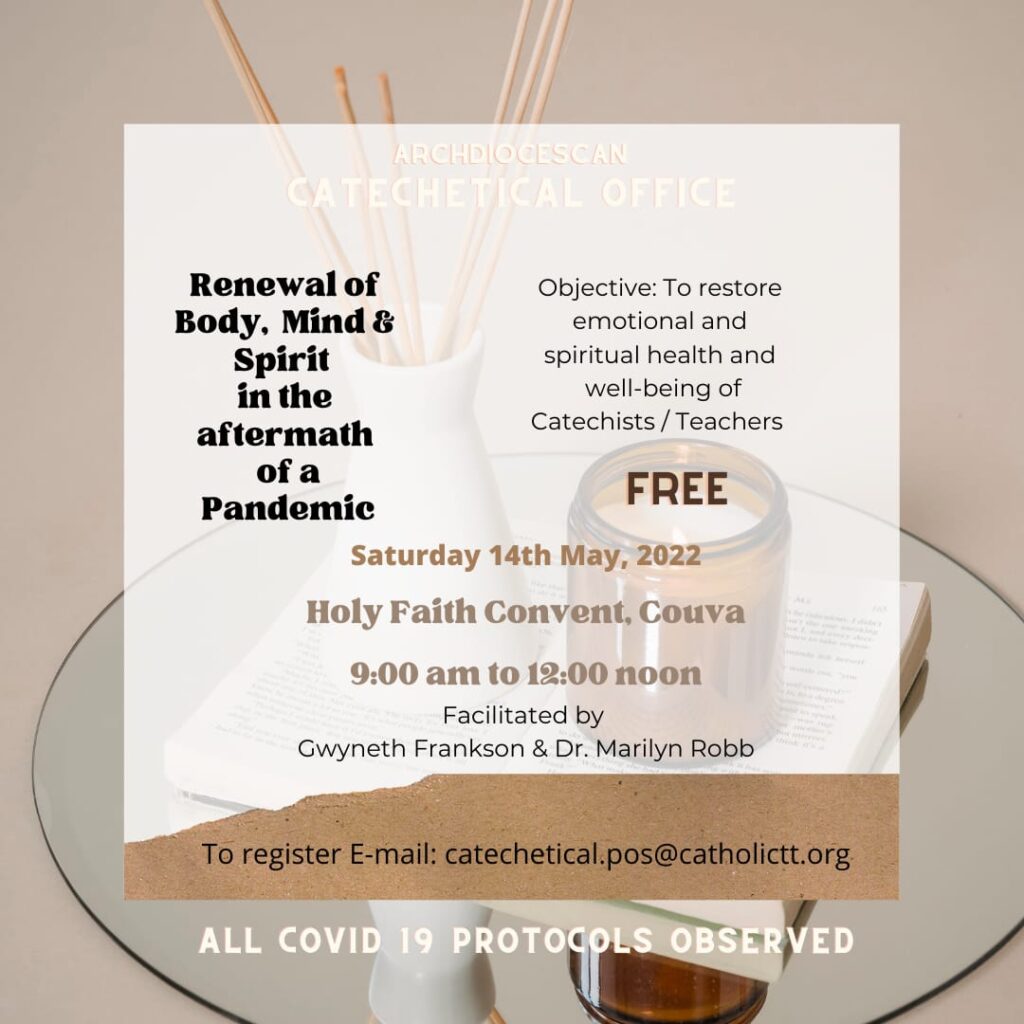
This event was held on Saturday May 14th at Holy Faith Convent Couva. All Covid-19 protocols were observed. See snapshots here from the event.
Check out our presentation below
by Aryanna Sookoo
A FAITH BUILDING LESSON- “If you have Faith the size of a mustard seed nothing is impossible for you” Matthew 17:20.
FAITH is like planting a seed. The First Communion Class of St. Benedict’s RC La Romaine began their faith journey many months ago. They compared the growth of their faith to that of a seed which they planted and nurtured by providing conditions necessary for growth: soil rich in minerals, water, sunshine. They also weeded the soil and kept records in their journals pertinent to the growth of the seedling.
For most students, caring for their plant deepened their understanding of FAITH. When seedlings were distributed, students could not tell what plant they were given. Many guessed, was it a pepper seedling, a pea or an ochro? They eventually found out by planting and caring for the seedling. “Faith is evidence of things not seen”. Students were able to compare, that the preparation of the soil for the plant was similar to finding a place for Jesus in their hearts. Keeping the commandments was likened to keeping the soil free of weeds for the plant to grow well. Praying daily was similar to the daily watering of the plant and reading the scriptures was like the sunlight the plant was exposed to. It was fascinating to be a part of this faith journey and the excitement generated from this project. It was evident that the children understood that the nurturing of their faith opens their hearts to joy and happiness just like nurturing the plant allows it to blossom into the beautiful and awesome plant it was intended to be.
Student work example number 2:
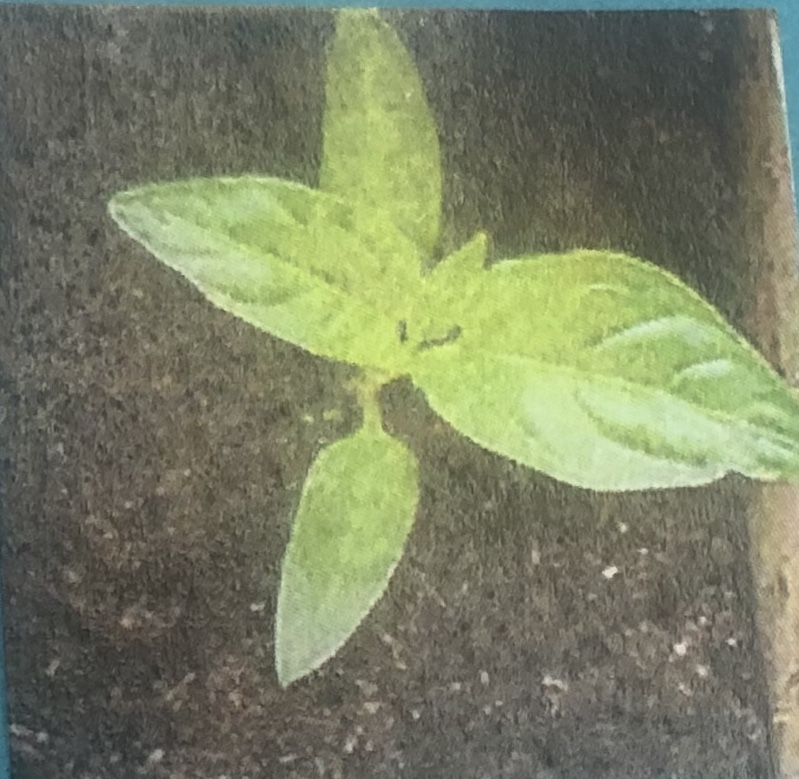
WEEK 1
I got this seedling today. I have to transplant it, water it and watch it grow.
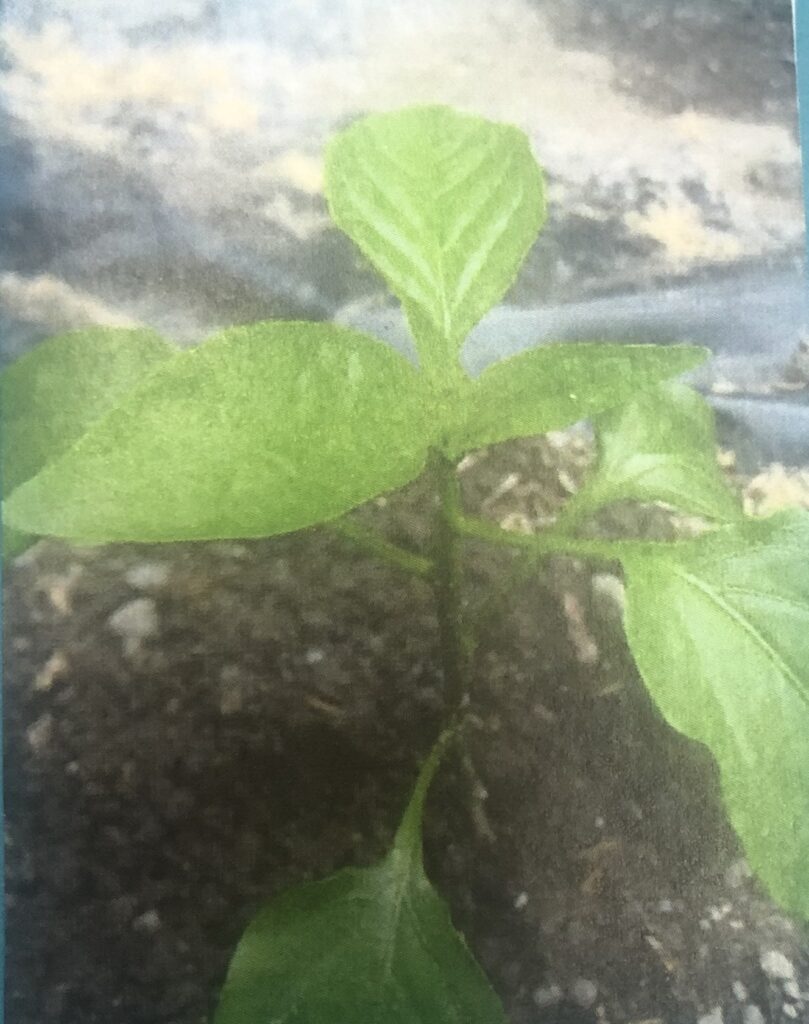
WEEK 3
My plant is growing, and will soon be ready to be transplanted.
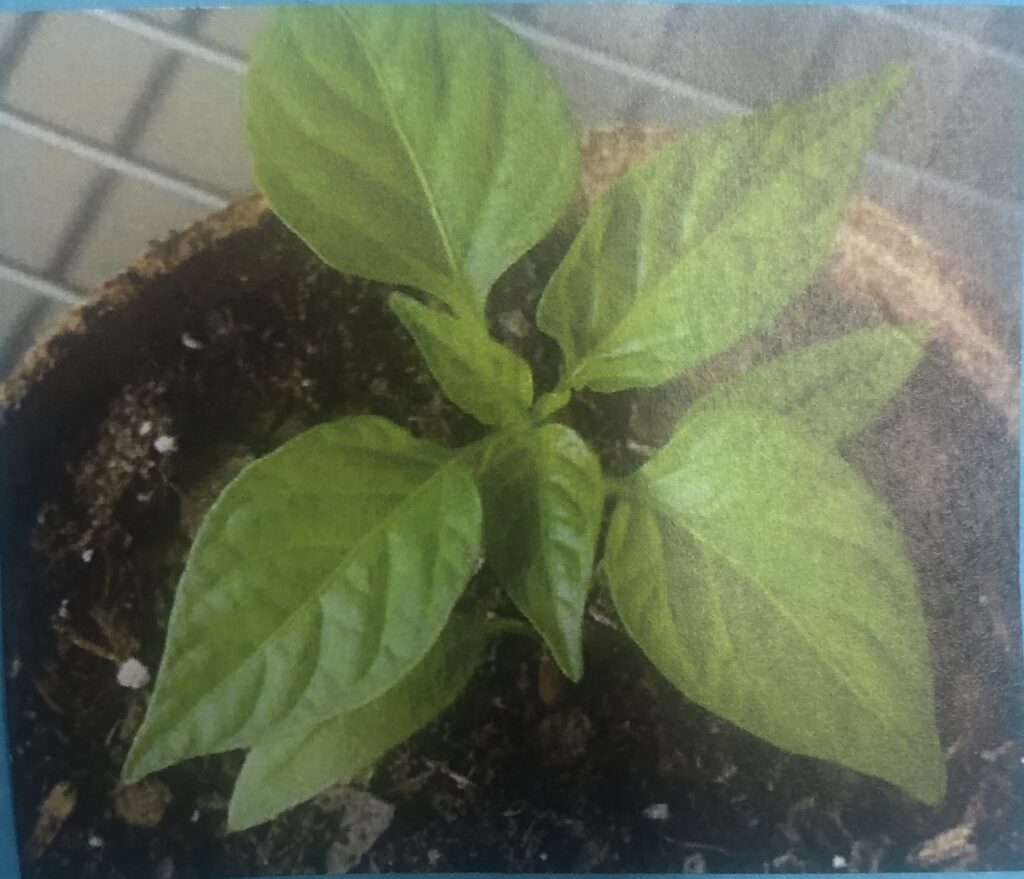
WEEK 5
I put my plant in a nice big pot today. It is just over ten centimeters (10cm) tall. It has more leaves than week 1, and looks stronger every day.
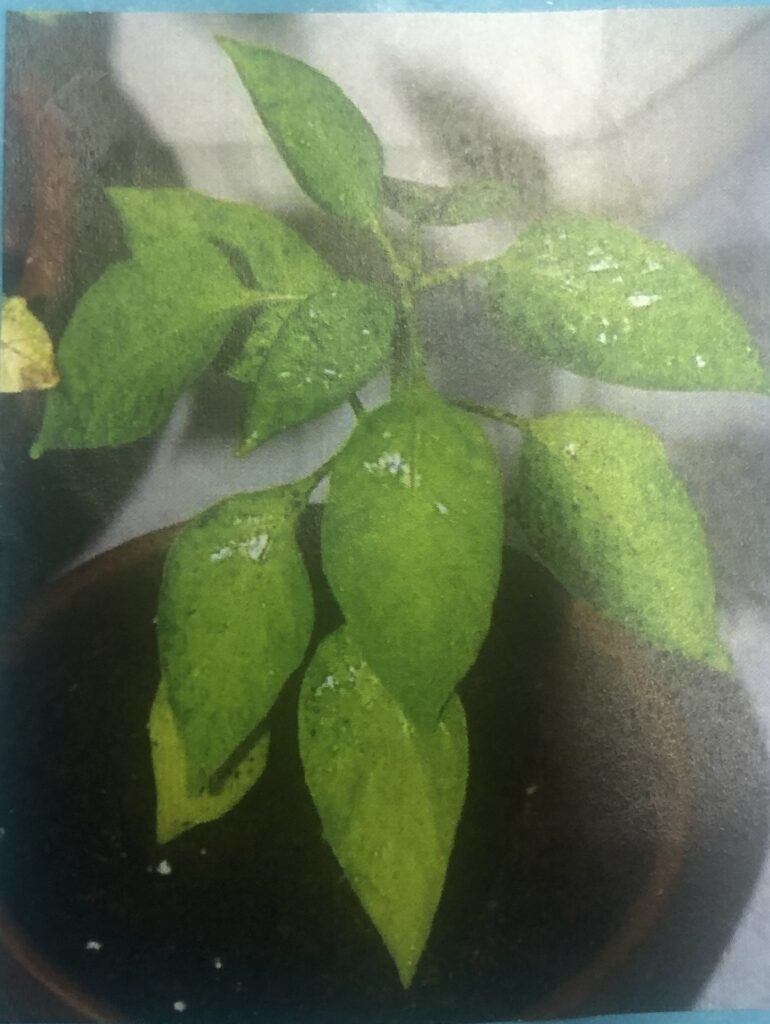
WEEK 6
My plant is growing stronger and taller day by day. It takes a lot of work to look after this plant.
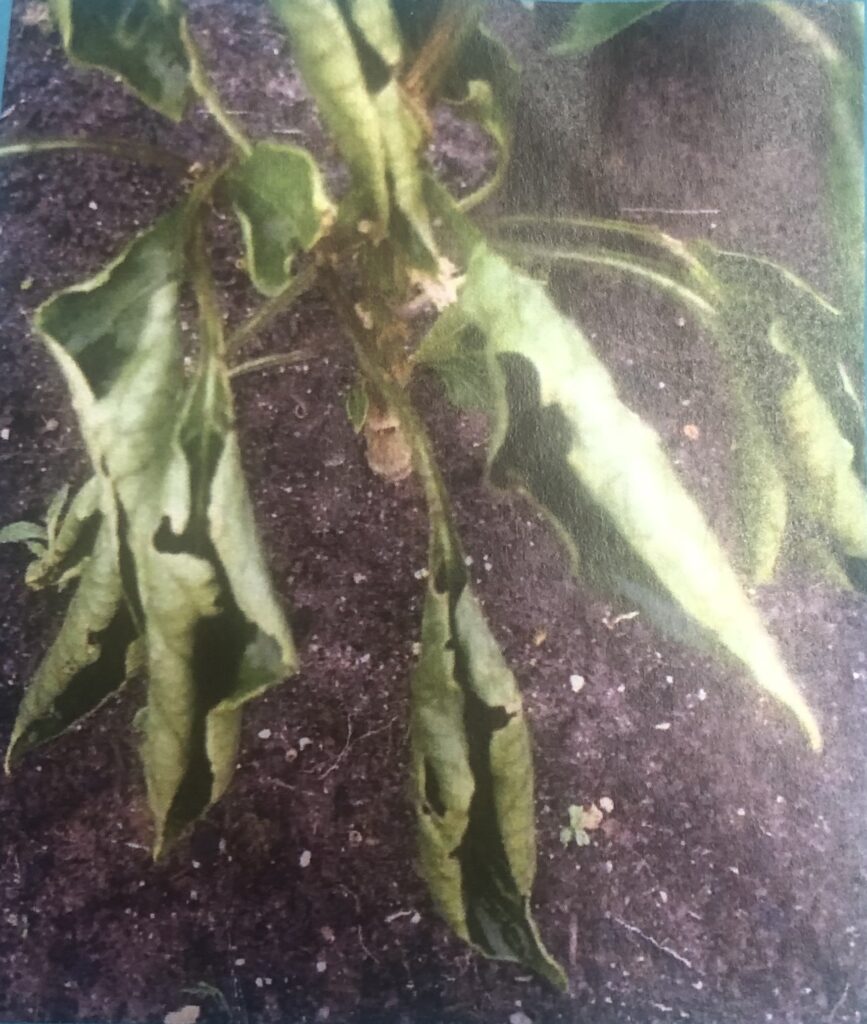
WEEK 8
I forgot to water my plant for a few days now… both the plant and I are very sad. I hope he will be okay. I will make sure to take better care of my plant in the future.
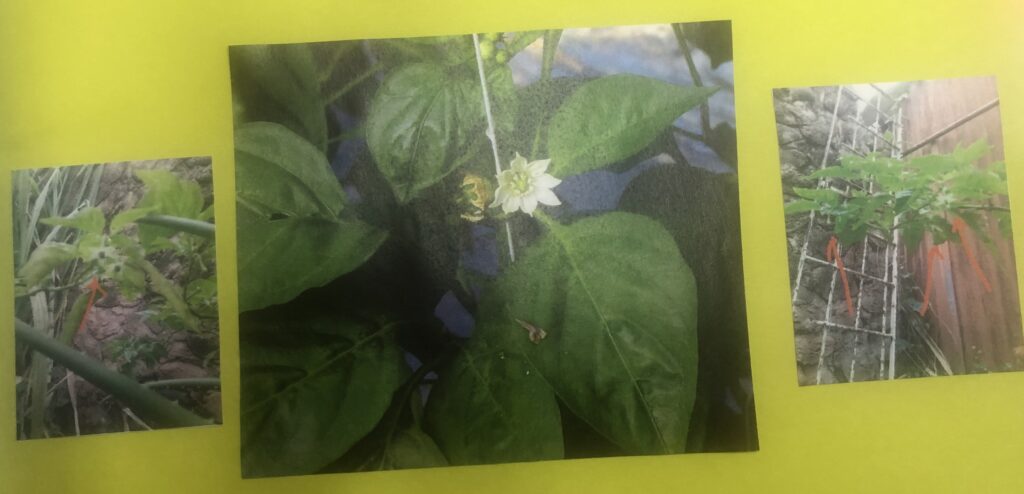
WEEK 10
I tried really hard. I watered my plant and we even gave it some fertilizer… and some extra love and care. My plant is stronger and healthier than before and is ready to bear fruit.
I got so excited when my plant started to flower that I forgot that my job was not yet complete. I stopped paying attention to it and thought it would be fine on its own… I stopped nurturing it, didn’t water it for some time and hardly visited the area I placed it.
By the time I remembered, the leaves had fallen off, the branches were drooping… my plant was dying
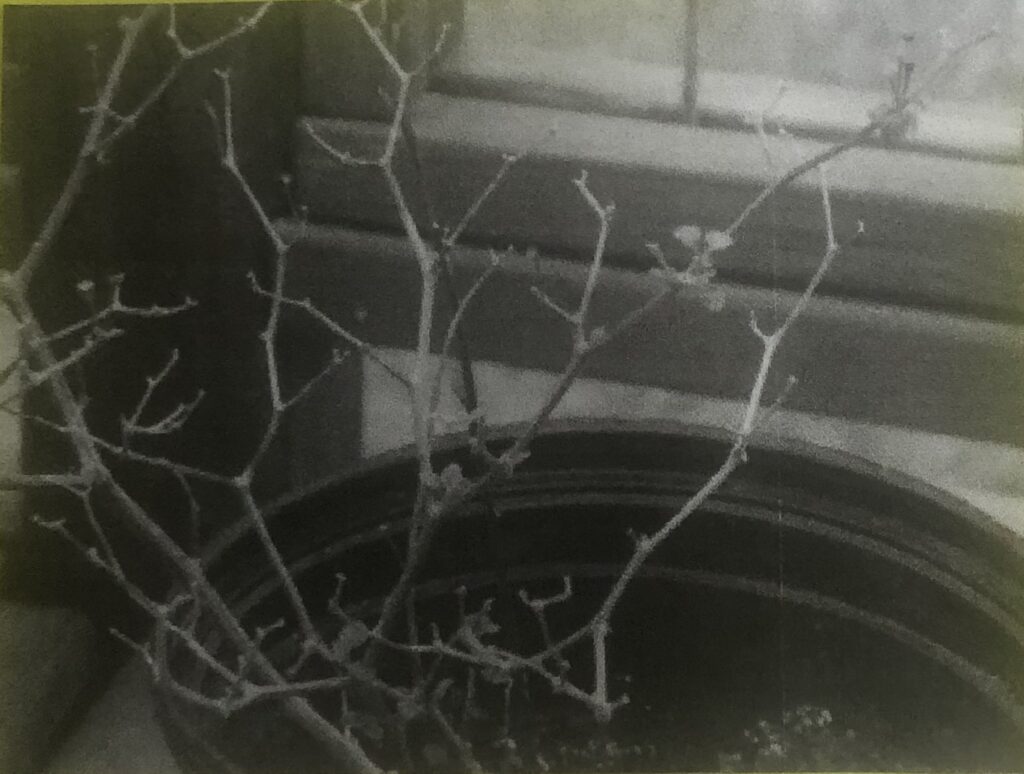
When mummy saw me crying, she explained that sometimes we lose our way and we need people to help us. We need their support and love to make our journey easier.
We called my uncle. He would sure know what to do and how to fix my plant. He would help me to take care of it.
Uncle Lyndon explained that we need to keep caring for the plant, even when we thought it could care for itself and even more when we thought it was not doing so well and even more when we thought it was dying.
He said with love and support and a dose of Faith, we could make anything possible
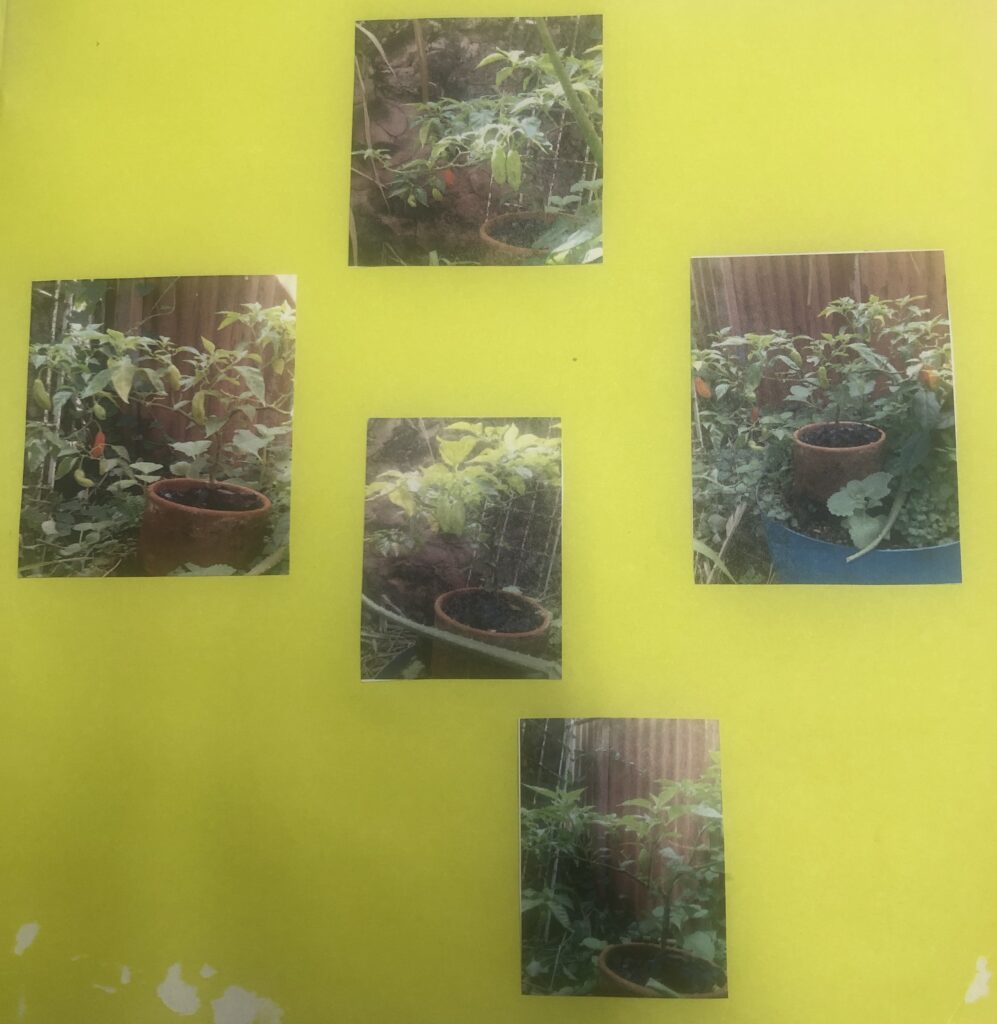
We tilled the soil, put egg shells and coal as fertilizer. We watered it, made sure there was the perfect amount of sunshine and we even talked to my plant.
Before long, tiny leaves reappeared. I felt like we were starting all over. I was excited and promised not to relax this time.
Ohhhhhh…… my uncle was so right.
Peppers grew and grew. And with every new fruit, I remembered how sad I was when I thought my plant had died and I was so very grateful to my family for helping and supporting me.
I picked my first peppers today. I was so proud and happy that with some love, dedication, hard work and Faith, we reaped the fruit. I knew exactly what I was going to do with these first peppers
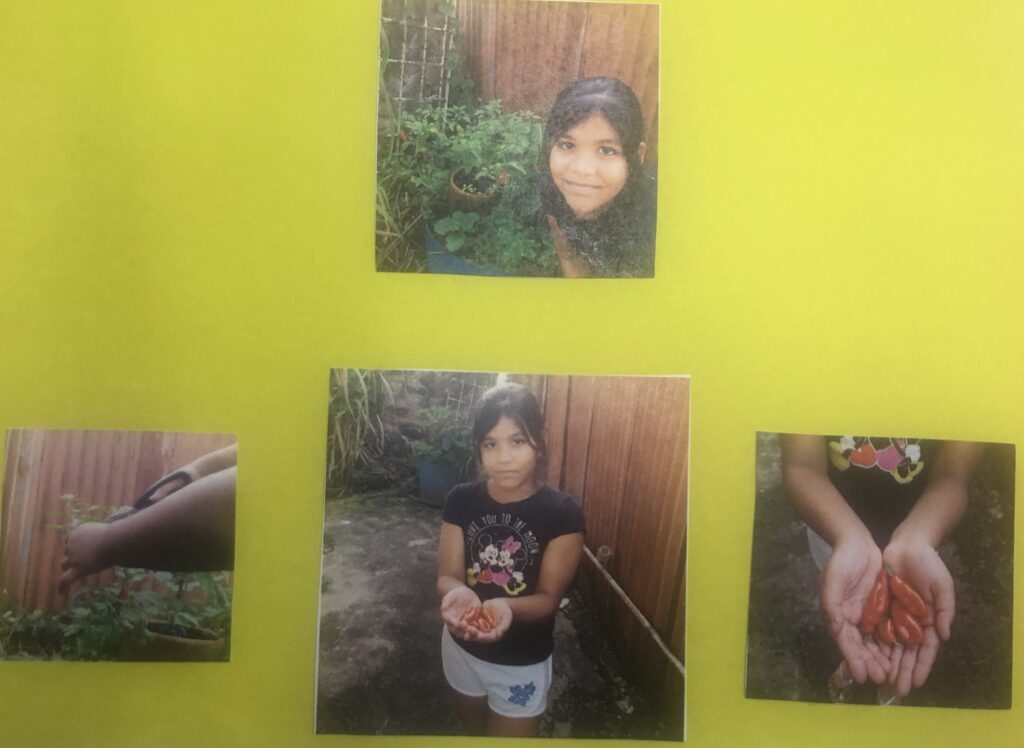
Father Christian has helped me on my journey to making my First Communion. Through his love and dedication and with his guidance I love being a Catholic. I love going to weekend Mass, listening to his stories, receiving special blessings and getting a hug after Mass. I am going to give the first fruit I picked to Father Christian
Today is Saturday 1st February, 2020 and I made my First Holy Communion today. My family was there to witness this very special event. I feel so proud and I am so very blessed. My parents brought my plant to the altar as a gift. It shows that with love, nurturing, lots of help and Faith we can bloom, grow and bear fruit. I am leaving this gift with Father Christian because I want him to keep enjoying the peppers from my plant and I want him to remember me
Mummy says it is the same way we must nurture our Faith and relationship with God and even when we lose our way.
He will keep his angels around us to protect us to protect us and guide us back to Him. He has given us people to love and support us on this journey and he is always watching over us. He loves to see His children doing well and bearing fruit.
He loves to see us happy
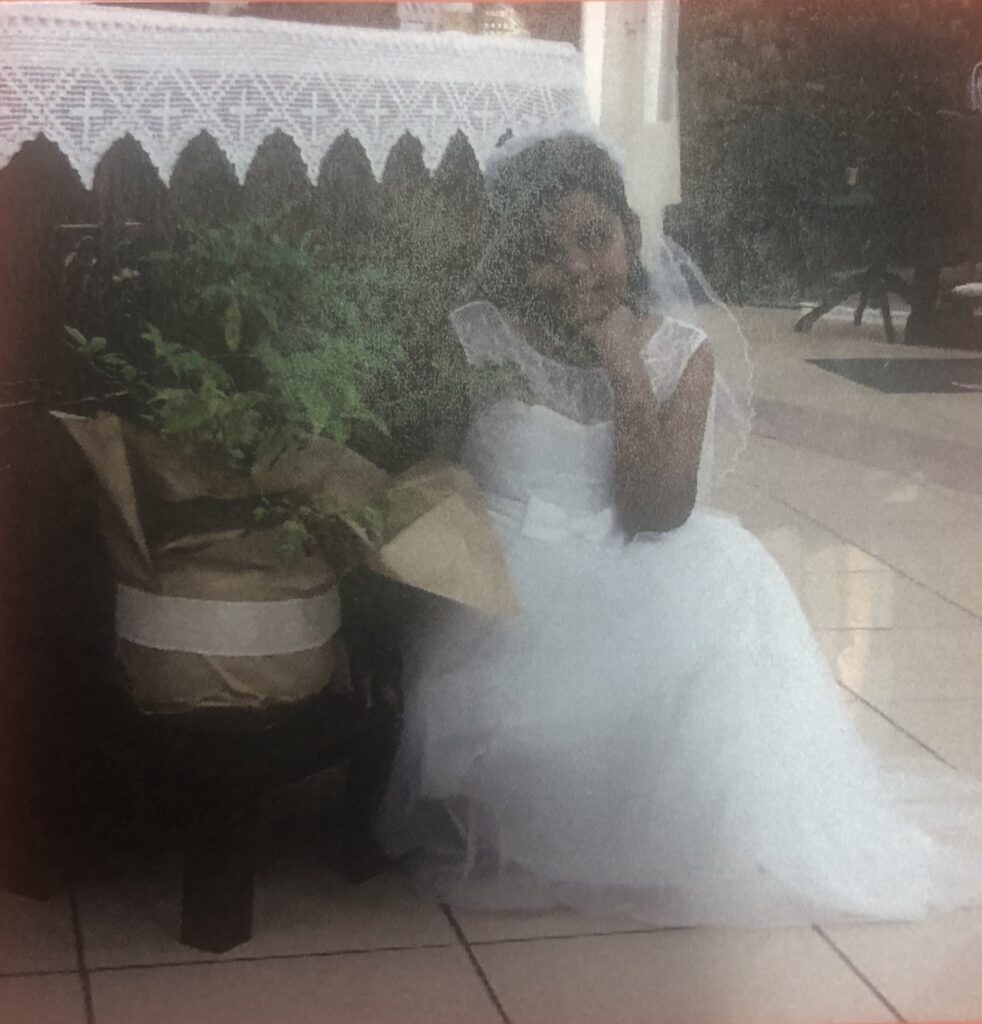
by Zackary K. Phagoo
A FAITH BUILDING LESSON- “If you have Faith the size of a mustard seed nothing is impossible for you” Matthew 17:20.
FAITH is like planting a seed. The First Communion Class of St. Benedict’s RC La Romaine began their faith journey many months ago. They compared the growth of their faith to that of a seed which they planted and nurtured by providing conditions necessary for growth: soil rich in minerals, water, sunshine. They also weeded the soil and kept records in their journals pertinent to the growth of the seedling.
For most students, caring for their plant deepened their understanding of FAITH. When seedlings were distributed, students could not tell what plant they were given. Many guessed, was it a pepper seedling, a pea or an ochro? They eventually found out by planting and caring for the seedling. “Faith is evidence of things not seen”. Students were able to compare, that the preparation of the soil for the plant was similar to finding a place for Jesus in their hearts. Keeping the commandments was likened to keeping the soil free of weeds for the plant to grow well. Praying daily was similar to the daily watering of the plant and reading the scriptures was like the sunlight the plant was exposed to. It was fascinating to be a part of this faith journey and the excitement generated from this project. It was evident that the children understood that the nurturing of their faith opens their hearts to joy and happiness just like nurturing the plant allows it to blossom into the beautiful and awesome plant it was intended to be.
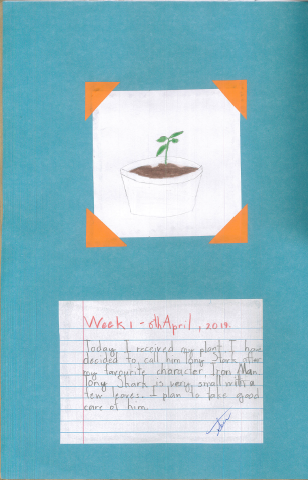
WEEK 1 – 6th April, 2019
Today I received my plant. I have decided to call him Tony Stark after my favorite character, Iron Man .Tony Stark is very small with a few leaves. I plan to take good care of him.
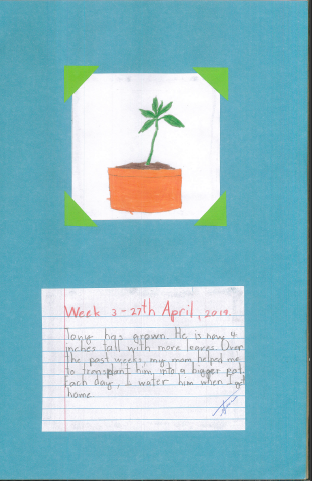
WEEK 3-27th April, 2019
Tony has grown .He is now 4 inches tall with more leaves. Over the past few weeks, my mom helped me to transplant him into a bigger pot. Each day I water him when I get home.
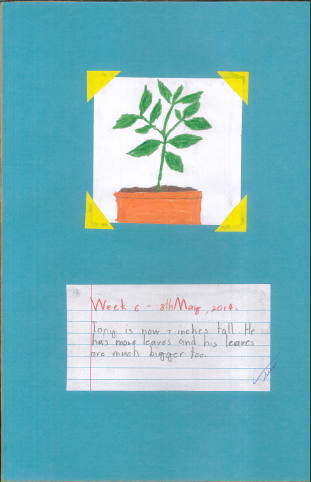
WEEK 6-8th May, 2019
Tony is now 7 inches tall. He has more leaves and his leaves are much bigger also.

WEEK 9-8th June
Tony has really grown. He is 15 inches tall and his leaves are HUGE! The largest leaves are the same size as my hand!
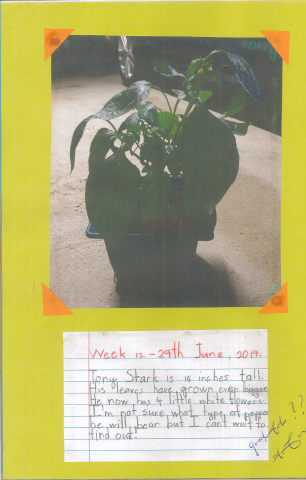
WEEK 12-29th June, 2019
Tony Stark is 16 inches tall. His leaves have grown even bigger. He now has 4 little white flowers. I’m not sure what type of pepper he will bear but I can’t wait to find out.
Spiritually: Christian Meditation; Lectio Divina; Holy Mass; Examination of conscience.Intellectually: Lots of information; References, Recommended booksEmotionally: Questions for sharing and reflectionPhysically : The sumptuous meals provided.We thank God for Bishop Jason and the organizers of the Conference.
Many Catholic adults have committed themselves to continuous edification in all that the faith has to offer. It is a journey which brings great sustenance to those who at times may feel bewildered and overwhelmed by the everyday challenges of life.
Most of us are aware by now, that the Archdiocese has embarked on the restructuring of the confirmation programme, commencing with the re-training of all the instructors. The procedure also involves standardising the material used for teaching this particular sacrament, so that there is one formal instructional template for the entire Archdiocese. This is the Church’s’ response to assisting the catechists in deepening their faith as they continue to journey.
Faith formation is the process by which we learn and grow in the Catholic faith. It is a life long journey that helps to broaden our knowledge on the Church’s traditions, doctrines, rituals, and scriptural teachings, in order to bring us closer to living a faith-filled life in Jesus Christ.
To effectively achieve this, teachers of the faith must be well formed and informed. This requires a continuous commitment to their own faith development, paralleled with their own human experiences. It is within these experiences we see ourselves in light of the scripture, the Church’s traditions, and the secular world. These experiences lend to our interpretations of various manifestations in our everyday lives.
The ability to relate our lives to our faith-belief systems, is pivotal to the foundation of our individual formation. “Put your finger here; see my hands. Reach out your hand and put it into my side.. stop doubting and believe.” (John 20:27) Although Thomas journeyed with Christ, he could not relate to what he was experiencing and it took more than Jesus’s words to convince him of what was taking place at that moment.
It is very possible that the other disciples appreciated Thomas’s dilemma, as they too might have been challenged by what was taking place before them. Jesus’ subsequent actions was necessary for them to truly believe as well. This is how faith is realistically passed on; this is how we catechise or teach, by the lives we live; being an example to others.
In the Roman Catholic Church, formal catechesis or teaching takes place through the Sacraments of Initiation: Baptism, Eucharist/First Communion, Confirmation and Rites of Christian Initiation – RCIA for adults. The sacraments are the faith pillars of the Church through which one can become a full member of the Catholic faith and of the Catholic Community. Catholic Christian formation or instructions takes place at each stage and is specific to each sacrament.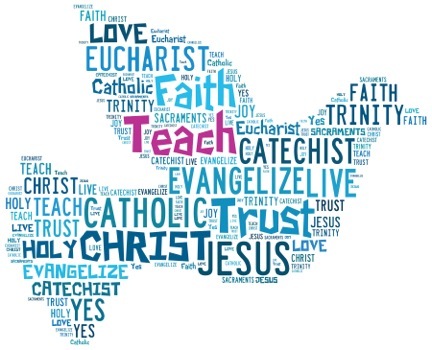
Here are some terms used in faith formation which one may be familiar with:
Catechesis – According to the Catechism of The Catholic Church (CCC#5), “catechesis is an education in the faith of children, young people, and adults which includes especially the teaching of Christian doctrine imparted, generally speaking, in an organic and systematic way, with a view of initiating the hearers into the fullness of Christian life.”
Catechists – Persons who are called to formally teach and pass on the faith or catechise. They are responsible for bringing those they teach, into the fullness of Christian life (Catholic).
Catechumens – Persons who have not been previously baptised in any denomination or Christian faith recognised by the Catholic Church and .are interested in receiving formal instructions for the preparation of entering into the Catholic faith.
Candidate – Anyone wanting to become a member of the faith who have been already baptised in a different Christian faith or denomination, recognised and validated by the Catholic Church.
Catechumenate – The state or process of preparation for receiving the rites of the Sacraments of Initiation or RCIA
In this Archdiocese, the Catechetical Office headed by the Directress for Catechetics, Sr. Juliet Rajah CHF, is responsible for the development and organisation of all sacramental faith formation programmes. The Office also arranges and provides courses and workshops for the formal training of Catechists.
 The parish priest is the chief catechist of his parish and is responsible for delegating and overseeing the implementation of all catechetical programmes, especially those related to the sacraments of initiation. He is also responsible for appointing members of the parish as catechists for each programme.
The parish priest is the chief catechist of his parish and is responsible for delegating and overseeing the implementation of all catechetical programmes, especially those related to the sacraments of initiation. He is also responsible for appointing members of the parish as catechists for each programme.
Continue this journey with us as we explore elements of faith formation in our Archdiocese, with the hope to educate, inform, enlighten and encourage you to get involved.
Become a catechist in your parish today!
By Andrew Fernandez,
Northern Vicariate Catechetical Coordinator
Catechetical Corner
Also featured in Sunday, May 21st 2017 Issue of the Catholic News, page 17
The Archdiocesan Catechetical Office recognizing the need for Adult Faith Formation produced the first in the series of resources entitled ‘Wellsprings of Prayer’.
This resource is based on the Catechism of the Catholic Church (CCC), section IV on Prayer. There is a Facilitators Guide and Participants Book. The sessions were conducted in the Northern, Suburban, Eastern, Central and Southern Vicariates. Tobago will start these sessions soon. The sessions were well attended.

